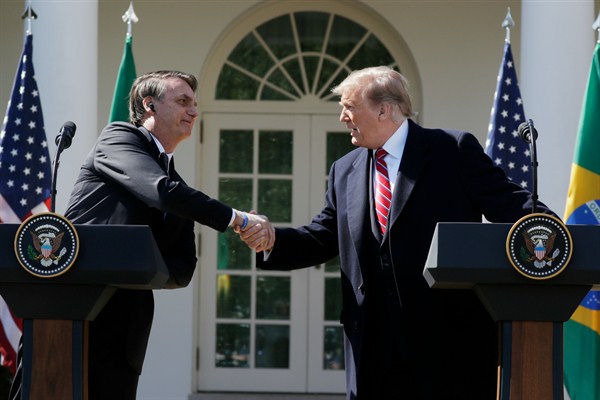In a sign of the high value he places on forging closer ties with Washington, Brazilian President Jair Bolsonaro made the United States his first bilateral trip overseas as president last month. At a meeting with President Donald Trump at the White House, the two liked-minded leaders agreed to deepen cooperation on a wide range of issues, and Trump announced his administration would designate Brazil as a major non-NATO ally. In an interview with WPR, Guilherme Casarões, a professor of comparative politics at the Getulio Vargas Foundation in Sao Paulo, explains the ideological origins of Bolsonaro’s charm offensive and why many Brazilians don’t see long-term benefits in entangling themselves with the U.S.
World Politics Review: What is the immediate impact of the U.S. designation of Brazil as a major non-NATO ally? How did this decision come about, and what is the strategic rationale behind it?
Guilherme Casarões: Bolsonaro’s decision to run for president in Brazil last year was largely inspired by Trump’s electoral victory two years before. Forging an alliance with Washington became a strong component of Bolsonaro’s foreign policy narrative during the presidential race. What many saw as just a campaign tactic, however, was in fact part of a bigger project aimed at aligning Brazil with a broader movement of right-wing populist governments, not only in the U.S., but also in Israel, Hungary, Italy and Poland.

